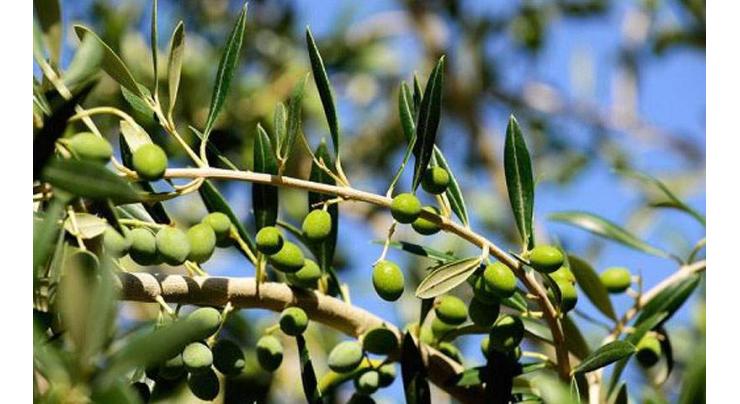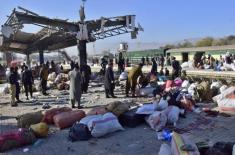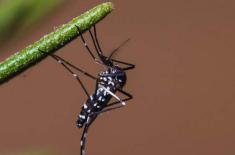
Green Gold Of Mountains: Olive Trees Transforming Malakand, Erstwhile Fata
Fahad Shabbir (@FahadShabbir) Published September 30, 2025 | 11:35 PM

Nestled within the majestic mountains of Talash Valley in Lower Dir of Khyber Pakhtunkhwa, a silent transformation is unfolding not through bulldozers or mega-projects, but through something much more humble ie olive trees
TALASH Lower Dir Sep 30 (APP) , (UrduPoint / Pakistan Point news - 30th Sep, 2025) Nestled within the majestic mountains of Talash Valley in Lower Dir of Khyber Pakhtunkhwa, a silent transformation is unfolding not through bulldozers or mega-projects, but through something much more humble ie olive trees.
Where once wild, unkempt groves covered the craggy slopes, now organized rows of grafted olive saplings many of Italian origin stand tall, heralding a green revolution.
For the farmers of Dir Lower and Bajaur, these trees are more than just plants. They are symbols of resilience, economic hope, and a future less reliant on imported oil.
"I never imagined these rugged hills would one day bear fruits that rival gold," says Khushal Khan, a farmer from Lower Dir, his hands calloused from years of tilling soil, adding “Olive trees are now our lifeline.”
He is one of hundreds of local farmers who have embraced olive cultivation, spurred by the government’s initiative to utilize Pakistan’s vast, underused land and reduce the country’s dependency on imported edible oil.
With nearly 75% of domestic oil needs being met through costly imports of palm, soybean, and sunflower oil, the economic urgency is clear. But beyond the numbers lies a deeply human story.
A casual traveler en route to Chitral will now witness a breathtaking view in Talash: mountains cloaked not in snow or shrubs, but in over 22,000 wild olive trees that have been grafted and now bear fruit. Another 114,000 plants have been cultivated — proof of the project's scale.
“The view took my breath away,” said Junaid Ahmed, a Karachi-based social worker visiting the valley. “This is no longer just a remote area but it’s the beating heart of Pakistan’s olive revolution.”
He believes the government should go further and officially declare Malakand Division an "Olive Valley", given its ideal climate and soil conditions.
The COVID-19 pandemic and floods nearly derailed the progress. travel restrictions meant farmers couldn’t transport produce to markets. “We faced huge losses,” Khushal laments. “Some of us were on the brink of giving up.”
But with the lifting of lockdowns and the return of plantation activities, hope has returned.
Ahmed Saeed, project in-charge for Promotion of Olive Trees Cultivation on Commercial Scale (POTCCS) in KP, shares that the initiative is now expanding to Abbottabad, Manki Sharif, Nowshera, and Bajaur.
“We are grafting wild olive trees with high-yield exotic varieties from Spain, Italy, Tunisia, and Turkey,” he said. While exotic saplings cost around Rs400 each, locally grafted ones come cheaper a long-term strategy for cost-efficiency.
According to experts 600,000 to 700,000 hectares in KP alone are suitable for olive cultivation, Rs25 billion in annual revenue can be generated from 0.6 million olive trees on 50,000 acres and if scaled to one million trees, the potential soars to Rs250 billion annually.
Nationwide, over 4.4 million hectares are deemed suitable for olive farming and nd this is just the beginning.
Dr. Zilakat Malik, a professor of economics, emphasizes that this is not merely about farming but it's a complete economic strategy. “This could revolutionize our edible oil industry by reducing billions in imports.”
At the Agriculture Research Institute in Tarnab Peshawar, researchers are working around the clock to perfect olive farming techniques. “We’ve introduced 84 new varieties of olives, with 8-10 already being cultivated,” says Dr. Abdul Rauf Khan, Director General Agriculture Research.
Farmers are taught that 400 olive trees per acre could yield profits between Rs150,000 to Rs200,000 annually, once the trees mature which can take five years but continue bearing fruit for up to a century.
Even more promising is that olive trees are hardy and environmentally friendly. Their shallow roots make them suitable for both plains and hills, and their resistance to drought means they need minimal water — a blessing in water-stressed regions.
Diyar Khan, Director of the Billion Trees Afforestation Project (BTAP), clarifies that while olive plantation is a separate initiative from BTAP, it is equally important in mitigating climate change.
“Olives are natural carbon sinks,” he explains. “They are not just about oil but they’re a line of defense against global warming and desertification.”
Bajaur and Lower Dir have now been declared model districts for olive farming. Over 250,000 olive plants have been distributed to local farmers, and 150 acres have already been converted into olive orchards in Bajaur.
In Sang Batti, Mardan has been declared the Olive Valley of KP with extraction plants with a capacity of 4,000 kg/hour have been installed to process the oil. Similar mills have been set up in Peshawar, Swat, Attock, and Loralai.
“The private sector is stepping in, too,” says Muhammad Tariq, National Project Director for POTCCS. “From nurseries to extraction plants, this is turning into a full-fledged industry.”
By 2026, the government plans to plant three million olive trees, with a projected output of 1,415 tons of edible oil, expected to generate Rs4.4 billion in revenue. Compared to Spain, which grows olives on 2.6 million hectares and supplies 45% of the world’s olive oil, Pakistan is just scratching the surface of its potential.
“If we fully utilize the 4.4 million hectares suitable for olive cultivation,” says Tariq, “we could not only meet domestic needs but eventually export as well.”
Back in Talash, Khushal Khan runs his fingers over the smooth bark of a young olive tree.
“This tree,” he says with quiet pride, “will outlive me. But it will feed my children, and maybe their children too.”
Indeed, the olive tree revered since ancient times as a symbol of peace and prosperity is now sowing both across the hills of Dir and Bajaur. And as Pakistan strives for economic resilience and environmental sustainability, it just might be the green gold the nation has long waited for.
APP/fam
Recent Stories

Balochistan Governor Jaffar Khan Mandokhel visits CMH, Civil Hospital to inquire ..

UN slams suicide attack in Quetta which killed 10 people

BISP, UNICEF to strengthen partnership for women & children’s health, nutritio ..

PML-N believes in performance-based politics: Ikhtiar Wali

President Zardari extends warm greetings to China on its 76th National Day

Kamal chairs meeting on dengue situation

Al-Khidmat Foundation distributes pushcarts among unemployed in Tando Adam

Commissioner orders for overhaul of municipal services to improve urban faciliti ..

Up to 35 mm rain recorded in Hyderabad during 3 hours

UBG chief for new federating units to evolve strong federation

Punjab Governor Sardar Saleem Haider Khan announces electric buses, passport off ..

Balochistan CS stresses good governance, digital payments, environmental protect ..
More Stories From Pakistan
-

Balochistan Governor Jaffar Khan Mandokhel visits CMH, Civil Hospital to inquire after injured in bl ..
5 minutes ago -

BISP, UNICEF to strengthen partnership for women & children’s health, nutrition
5 minutes ago -

PML-N believes in performance-based politics: Ikhtiar Wali
5 minutes ago -

President Zardari extends warm greetings to China on its 76th National Day
5 minutes ago -

Kamal chairs meeting on dengue situation
50 seconds ago -

Al-Khidmat Foundation distributes pushcarts among unemployed in Tando Adam
51 seconds ago
-

Punjab Governor Sardar Saleem Haider Khan announces electric buses, passport office for Hazro
7 minutes ago -

Balochistan CS stresses good governance, digital payments, environmental protection
7 minutes ago -

Green gold of mountains: Olive trees transforming Malakand, erstwhile Fata
7 minutes ago -

Pakistan–Turkmenistan Parliamentary friendship group holds first meeting
7 minutes ago -

Police launched Anti-encroachment operation in SBA
7 minutes ago -

Security Forces foil attempt of attackers to enter FC complex: Senate told
43 minutes ago











